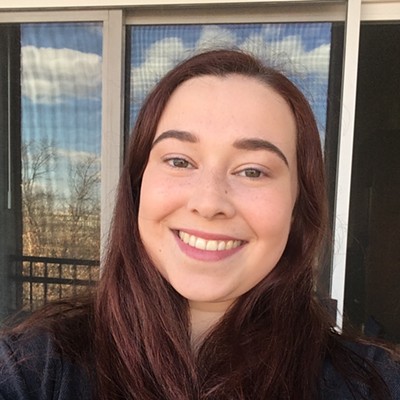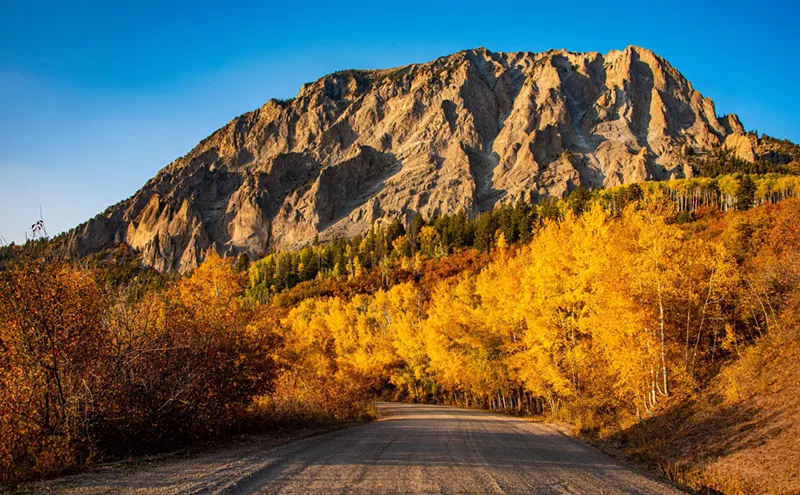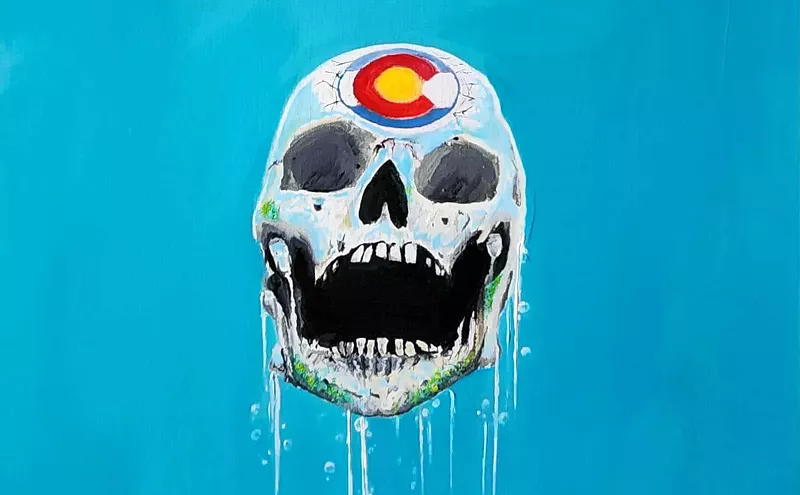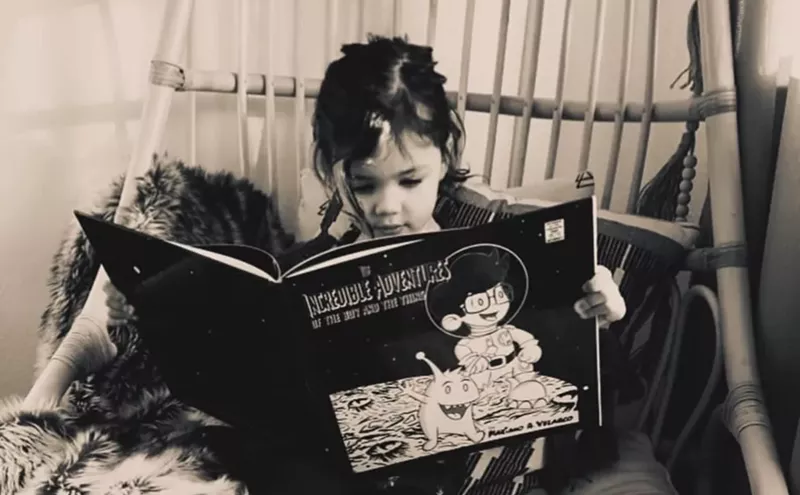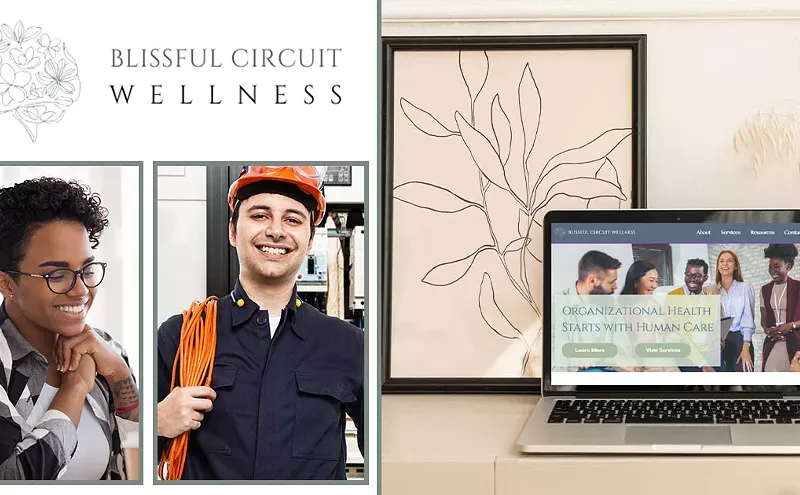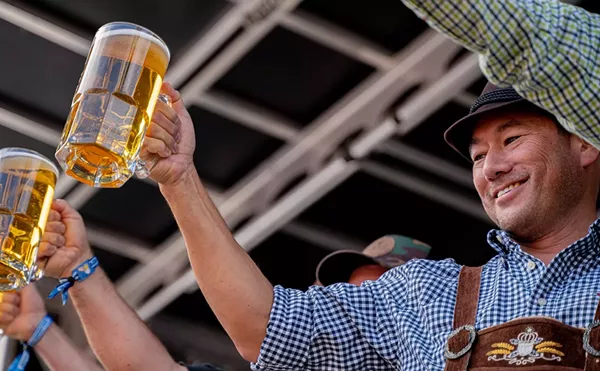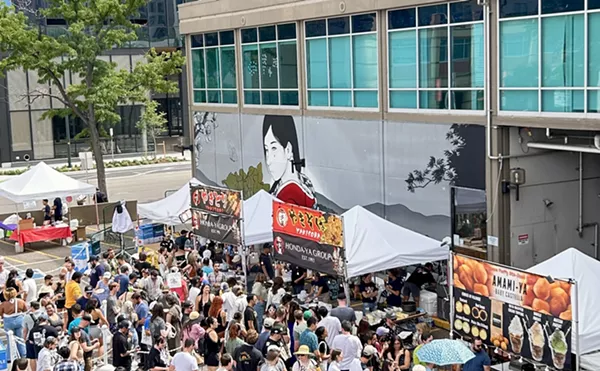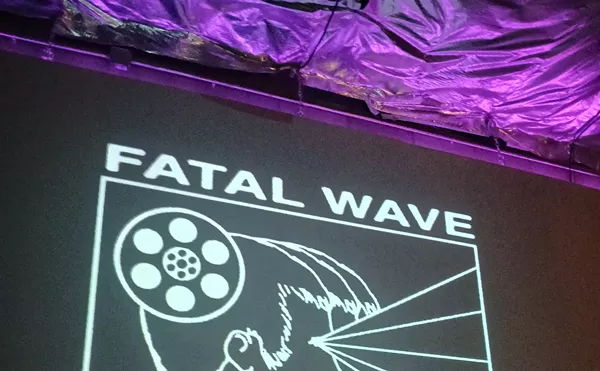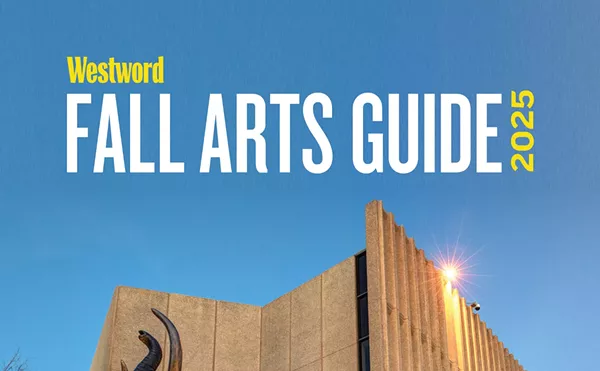"I didn't know you could just do that," Abston says. "I thought all those comedians I liked were just up there talking, because that's the curse of standup comedy: If you're really good at it, you make it look easy." He quickly discovered it was not that simple: "I tried it out. I was terrible. I bombed a lot. Then around [age] 22 and a half, things just started to click."
While he was still primarily interested in writing, Abston continued with standup because it exercised a similar skill set. "It was really helping my screenwriting, with the way I was able to make decisions quicker, and the writing was more to the point," he explains. "That's why I kept doing it, but eventually I got good at it, so I was like, 'I might as well just keep doing it.'"
Seven years later, with two hour-long specials, a sold-out cross-country tour and a staff writer job on FXX's wildly popular show Dave under his belt, Abston still works at a dispensary. He's currently on strike with the WGA, trying to secure a better future for screenwriters like himself (one that doesn't require several day jobs to make ends meet), but in the meantime, he's on his standup tour, which includes five nights in Denver starting Wednesday, July 5.
Once Abston found his footing in comedy, he set out to cement his status as a comic with his first hour special in February 2020. Though he had previously never done a full hour, he invited more than 100 people to a house party, set up some cameras and filmed Girls Don't Twerk to Jokes. "It was really meant to be a documentary at first," he reveals. "I think the longest I had done before then was 28 minutes, so I was really just hoping to have fortyish minutes, and I ended up doing an hour and twenty minutes that night."
He wasn't expecting it to launch his standup career (though it did), but he figured it would at least demonstrate his capabilities to prospective employers. "I still didn't really care about standup then; I wanted to write for TV. So I felt like, if I put a special out with an hour of me performing jokes, why wouldn't somebody be like, 'Come write on my show'? If you can write an hour of jokes, you can write jokes for a TV show," he explains.
For Abston, having an hour special was also the mark of a true comedian: "I wanted to do an hour special because growing up, the way you knew all your favorite comedians was through hour specials. A very small percentage of people go to shows, so you know your favorite comic through their albums and specials." His gateway to comedy (at age six) was Chris Rock's 1996 Emmy-winning TV special Bring the Pain, which introduced him to other comedians such as Richard Pryor, Dave Chappelle and Katt Williams. "Richard Pryor had some of the best albums. When you listen to my specials, I want you to have just as good a time in your car as you would watching it on YouTube. Listening to Richard Pryor's albums, that was definitely something I wanted to do," Abston says. "Chris Rock and Dave Chappelle — both of them did their first specials at 27, and I was 24 when I shot mine, so I wanted to beat both of them. Katt Williams, I think, has one of the best specials — just laugh to laugh — ever. Those were my biggest influences."
While these comedians played a part in shaping his humor, Abston says that some of the funniest people he's encountered weren't comedians at all. "When I lived in my car in L.A. when I was 21, I used to meet the most interesting characters," he recalls. "Just meeting other homeless people — I wish I could tell you names and exactly what they said — but those had to be some of the funniest people I've ever met."
But there's more to being a comedian than just being funny, which, according to Abston, is a distinction that most non-comedians fail to understand. "It's a big difference, because being funny is just like, you have a certain charisma. A lot of the funniest things come from familiarity, embarrassing yourself, making fun of someone, and that comes naturally," he says. "Standup comedy is an art form. Writing jokes is an art form. Performing jokes is an art form. Delivery, misdirection, being ready for anything — it's a craft that you build over years and years."

This will be the third year in a row that Niles Abston performs in Denver, which he says "has probably the best weed in the country."
John Becker
Instead of punching down, Abston pokes and prods upward, skewering people of power or privilege with smart, incisive jabs. "I think that's just how I see the world, sadly," he says of his gallows humor. "I grew up Black in America. There's not a lot to really be positive about. I think a lot of us deep down know this is scary; we just don't say it out loud. What helps me is making fun of it and laughing at it. Thankfully, y'all laugh too."
No topic is strictly off-limits for Abston, but he won't take on a controversial subject unless he can find an original angle: "I think I can find the comedy in anything, especially if it has to do with my life. I wouldn't say there are subjects I don't touch, but there have been things where I'm like, 'I think this comedian could do that better, so I don't need to touch that,'" he explains."At this point, people who have seen me perform before or watched me online have a standard that they hold me to when they come see me live, and I just want to be able to keep that. Best jokes only."
Case in point: Abston's favorite joke from his most recent special, Household Name, is a brilliant bit about Meghan Markle, the Royal Family, colonialism and the pitfalls of representation. "I feel like I was able to come at it in a way that no one else had yet. Either racist people were bashing her and not talking about the queen, or people way too on the liberal side were bashing the queen but had no critique for Meghan and Harry whatsoever," he says. "It's so weak. You're not punching down on two people who stay at Tyler Perry's mansion in L.A. — I promise you can make fun of them. But I would see people tiptoeing around that, especially Black comics. I really pride myself on being able to make that funny, and making fun of both sides of the situation."
With the ongoing WGA strike abruptly halting screenwriting work, Abston is now embracing comedy as his main hustle. "What this strike taught me is that standup is the only thing I really have. This other shit can basically be taken at any time, and we've seen that," he says. "It's crazy that I wrote for one of the biggest shows on television, that had Brad Pitt, Drake, Rachel McAdams and Don Cheadle on it, I co-wrote an episode that was featured in Rolling Stone before it even came out, one of the most popular episodes of the season, and I work at a dispensary." Although he's not abandoning screenwriting, he's skeptical of how the industry will improve: "You're dealing with people that don't value you as a writer, and they'll do anything they can to save money. I do want to write TV, and I do want to write movies, but I'm being real with myself in the sense of, this industry is so out of whack. I don't think one strike is going to fix everything. I'm definitely seeing it for what it is, and realizing that this talent that I have that can go directly to people is going to be more important than ever going forward."
See Abston live in Denver this week: 8 p.m. Wednesday, July 5, Ratio Beerworks, 2920 Larimer Street; 7:30 p.m. Thursday, July 6, Hai Comedy, 3600 West 32nd Avenue, Suite D; 7:30 p.m. Friday, July 7, and Saturday, July 8, West Arvada Comedy, 6420 Ward Road, Arvada; 7 p.m. Sunday, July 9, Sunday Funday at Finn's Manor, 2927 Larimer Street. Tickets and more information are available online.



